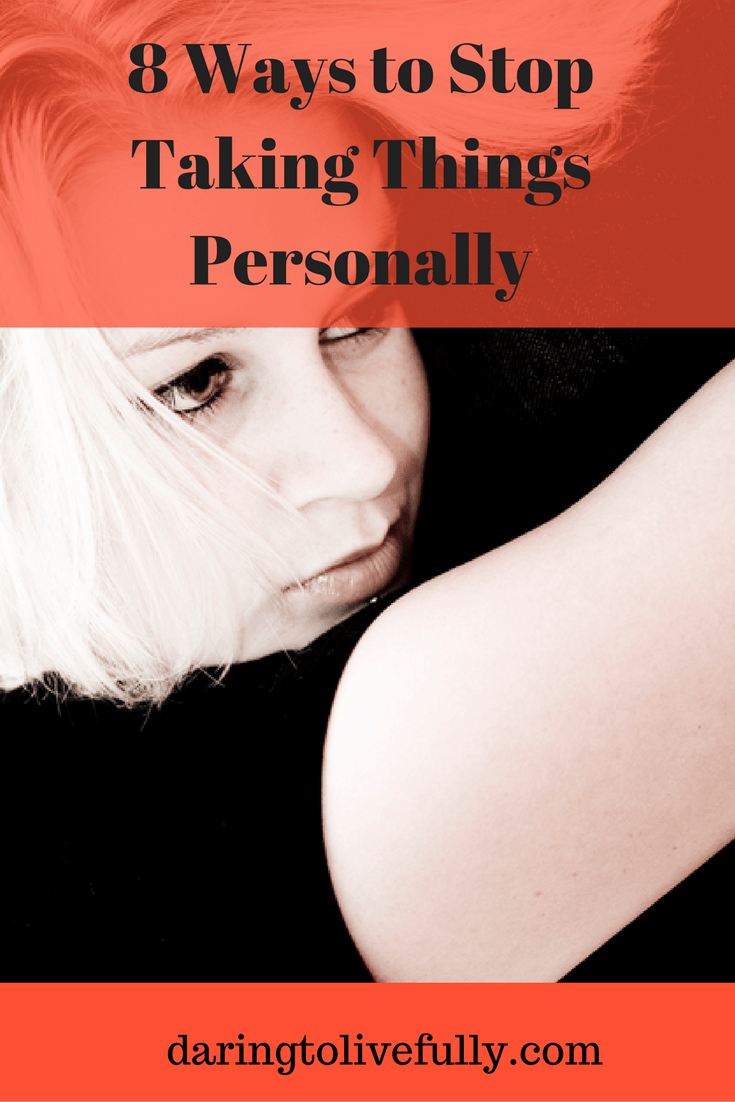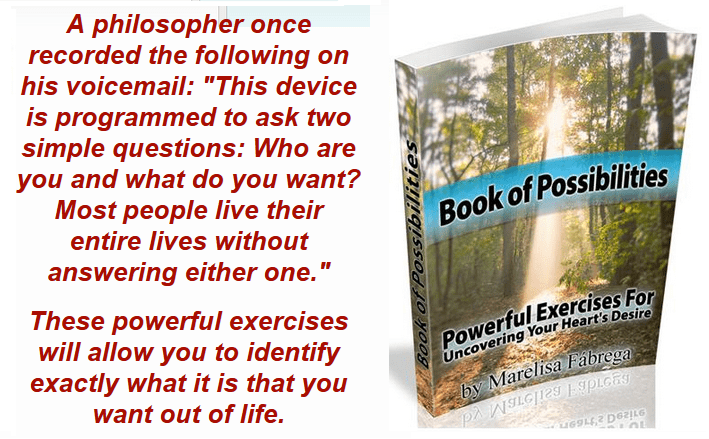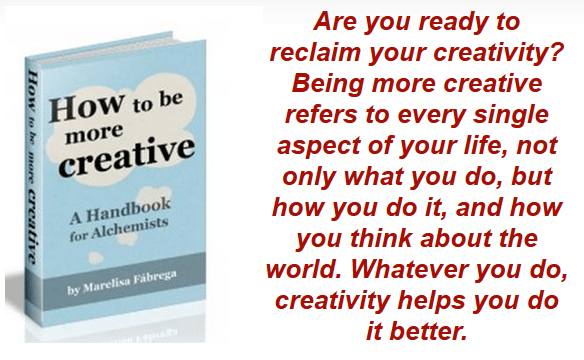
Improve the quality of your life by not taking things personally.
The other day I was in a building running an errand. As I walked through the lobby toward the exit, a woman I didn’t know walked past me. As she did she said, “Buenas”–which is a standard greeting–, and I answered, “Buenas”, and kept going. Then I heard the woman say:
“You’re so rude. Learn some manners. When someone greets you, you should greet them back.”
 I stopped and turned around, and I saw that the woman was talking to me. Obviously, she didn’t hear me when I answered her greeting. In addition, it was evident that she had concluded that I simply chose to ignore her, and she took it personally. Given her state of agitation, it was clear to me that she felt slighted. I told the woman that I had responded to her greeting, and it wasn’t my fault that she didn’t hear me. Then I left. What I really wanted to tell her was that she needed to learn how to stop taking things personally.
I stopped and turned around, and I saw that the woman was talking to me. Obviously, she didn’t hear me when I answered her greeting. In addition, it was evident that she had concluded that I simply chose to ignore her, and she took it personally. Given her state of agitation, it was clear to me that she felt slighted. I told the woman that I had responded to her greeting, and it wasn’t my fault that she didn’t hear me. Then I left. What I really wanted to tell her was that she needed to learn how to stop taking things personally.
Whenever I walk into an elevator and there’s already someone in there, I say “Buenas”, because that’s a cultural practice in Latin America. Most of the time people answer my greeting. But sometimes they don’t. And when they don’t, I don’t take it personally.
I used to take things personally all the time, but now, for the most part, I don’t. How did I stop takings things personally (or at least get much better at it)? I learned certain strategies, which I’m going to share with you. Below you’ll find eight ways to stop taking things personally.
1. Question Your Beliefs.
As I explained in my post on Rational Emotive Behavior Therapy (REBT), psychologist Albert Ellis–the father of REBT–argued that a person is not affected emotionally by what happens around them, but by their interpretation of what happened. In turn, our interpretations are formed by our beliefs.
Obviously, I can’t say for sure what was going on in the mind of the woman in my example above, but I can guess that her beliefs were along the following lines:
- If I greet someone, they have to greet me back.
- If they don’t return my greeting, they’re being disrespectful.
- If they’re disrespectful, it’s because they think that I’m not worthy of respect.
- If people think I’m not worthy of respect, then they think I’m worthless.
- If people think I’m worthless, then maybe I am.
You can see how that line of reasoning would lead the woman to feel bad and want to lash out at me.
I, on the other hand, don’t get upset if people don’t greet me when I greet them, because my beliefs are the following:
- I greet people when I walk into an elevator because I think it’s polite to do so, but not everyone has the same view.
- If they don’t greet me back it’s not about me, but about them. Any of the following could explain why they didn’t return my greeting: they didn’t hear me; they don’t speak Spanish (there’s a lot of foreigners in Panama); they’re having a bad day; or they simply think it’s best not to talk to people they don’t know in elevators.
The woman from my example and I react differently to the same situation because we have different beliefs. If you want to stop taking things personally, question your beliefs.
2. Stop Worrying So Much About What Other People Think of You.
The only reason why you would take something someone says about you personally is if the approval of the person you’re interacting with is important to you. Realize the following:
- You’ve been conditioned since birth–read, brainwashed–into thinking that you have to belong and be accepted by others.
- The truth is, not everyone has to like and accept you.
- In addition, you can’t control what others think of you. Even if you follow all of the “rules” and do everything “right”, how others respond to you is outside of your circle of influence.
- If you accept yourself, and act in the way that you think is right, you’ll attract people who will accept you for who you are. That is, people around whom you don’t have to worry about what they’re thinking of you, because you know they love you.
3. Recognize the “Spotlight Effect”.
A lot of the time when we feel that we’re been judged or criticized by someone else, we’re actually not. Since we’re each inside our own head, we’re acutely aware of our flaws, weaknesses, and insecurities.
But other people, for the most part, aren’t. Therefore, you may think that you picked up on some criticism from a co-worker, when the reality is that they weren’t talking about you at all.
Think of the following: without a doubt there have been times in the past when you’ve taken something personally, when what was said wasn’t even about you. Keep that in mind the next time you’re tempted to take something personally.
4. Become More Confident.
Confidence acts as a buffer between you and the comments and actions of other people. The more confident you are, the thicker that buffer is. Look at the following:
- If you have low confidence you’re likely to bristle at any negative comment people throw at you because there’s a part of you that’s afraid that what they’re saying is true.
- If you have high confidence and someone says something negative about you, you know that what they’re saying isn’t true; that it’s a small flaw that isn’t going to hold you back in any way; or that it’s something that you have the ability to fix. Therefore, it’s much easier for you to simply shrug it off.
5. Think: “Troll-Delete”.
Right now the comments section for this blog is closed. However, there was a time when the comments section was open and people would leave comments. Although most of the comments I received were positive, I would sometimes get comments like the following:
- “This is so stupid. Whoever wrote this must be an idiot.”
- “What a lame article.”
- “You’re obviously not an educated person.”
Did I take these comments seriously? Did I dwell on them? Did they make me feel bad about myself? No, on all three accounts. I would think ,”troll”. Then I would delete the comment, and move on to the next task on my to do list.
The next time someone says something negative about you out of the blue, just think: “Troll-Delete”.
6. Be Too Busy to Care.
The truth is, if you have time to dwell endlessly on what so-and-so said about you, you have too much time on your hands. Find something productive to do. Go on Duolingo and learn some phrases in a foreign language; take an “Introduction to Computer Science” MOOC; or read a book.
The next time you’re tempted to rehash a conversation that left you feeling as if you had been belittled, tell yourself: “I’m too busy for this. I have far more productive things to do with my time than sit here, thinking about this.”
 7. Stop Giving Your Power Away.
7. Stop Giving Your Power Away.
When you let other people upset you, you’re allowing them to dictate how you feel. That is, you’re giving them power over you. Stop giving your power away. Do the following:
- Calm yourself down by taking a few deep breaths.
- Tell yourself that you will not give anyone the power to make you unhappy.
- Take your power back by taking control of what you’re thinking and choosing a different line of thought.
8. Don’t Drink the Poison.
In The Four Agreements: A Practical Guide to Personal Freedom (A Toltec Wisdom Book) by Don Miguel Ruiz, the second agreement is “Don’t take anything personally.” Here’s a quote from the book:
“Even when a situation seems so personal, even if others insult you directly, it has nothing to do with you. What they say, what they do, and the opinions they give are according to the agreements they have in their own minds…Taking things personally makes you easy prey for these predators, the black magicians. They can hook you easily with one little opinion and feed you whatever poison they want, and because you take it personally, you eat it up….”
Here are a few more insights from Don Ruiz:
- “Don’t take anything personally because by taking things personally you set yourself up to suffer for nothing.”
- “Even if others lie to you, it is okay. They are lying to you because they are afraid.“
- “There is a huge amount of freedom that comes to you when you take nothing personally.”
- “The whole world can gossip about you, and if you don’t take it personally you are immune.”
- “When you don’t take the emotional poison, it becomes even worse in the sender, but not in you.”
Conclusion
Taking things personally takes a toll on your happiness and on your peace of mind. Live your best life by not taking things personally. Start by following the eight strategies above.





Related Posts:




 Marelisa Fabrega is a lawyer and entrepreneur. She holds a Bachelor of Science in Business Administration from Georgetown University in Washington, D.C., as well as a Juris Doctor from the Georgetown University Law Center. You can learn more about her
Marelisa Fabrega is a lawyer and entrepreneur. She holds a Bachelor of Science in Business Administration from Georgetown University in Washington, D.C., as well as a Juris Doctor from the Georgetown University Law Center. You can learn more about her 





